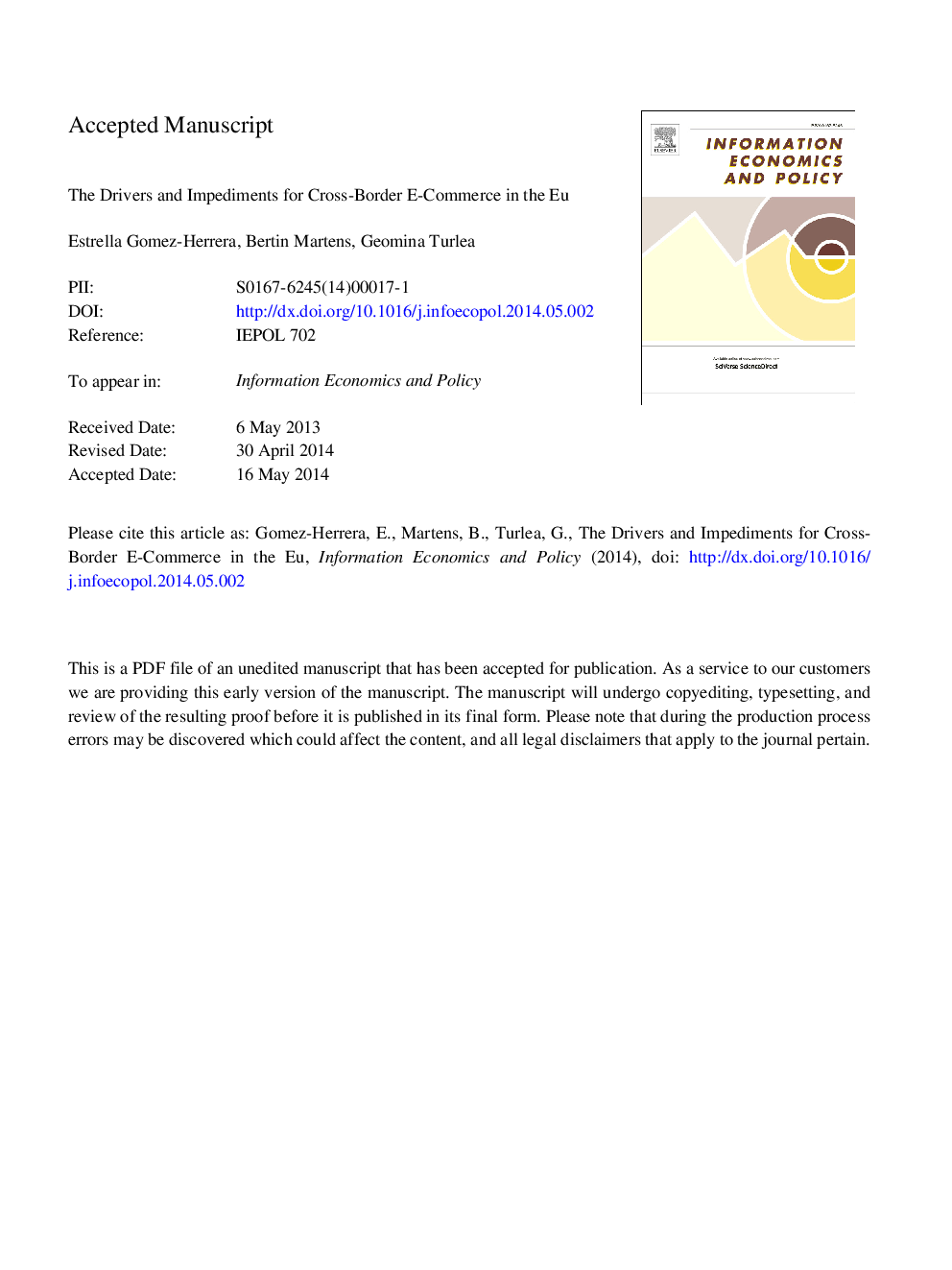| Article ID | Journal | Published Year | Pages | File Type |
|---|---|---|---|---|
| 5075778 | Information Economics and Policy | 2014 | 42 Pages |
Abstract
The rise of the internet is often associated with the “death of distance” or at least the decreasing relevance of geographical distance in the supply of information. We investigate whether distance still matters for online trade in physical goods. We use data from an online consumer survey panel on online cross-border trade in goods in a linguistically fragmented EU market. The analysis confirms that distance-related trade costs are greatly reduced compared to offline trade in the same goods. However, language-related trade costs increase. Moreover, online trade introduces new sources of trade costs such as parcel delivery and online payments systems. On balance, there are no indications that online trade is less biased in favour of home market products than offline trade. We examine options available to policy makers to boost cross-border e-commerce in the EU Digital Single Market. A 1% increase in the use of efficient and flexible cross-border payment systems could increase cross-border e-commerce by as much as 7%. We also show that online trade gives a comparative advantage to English-language exporting countries.
Related Topics
Social Sciences and Humanities
Business, Management and Accounting
Management of Technology and Innovation
Authors
Estrella Gomez-Herrera, Bertin Martens, Geomina Turlea,
